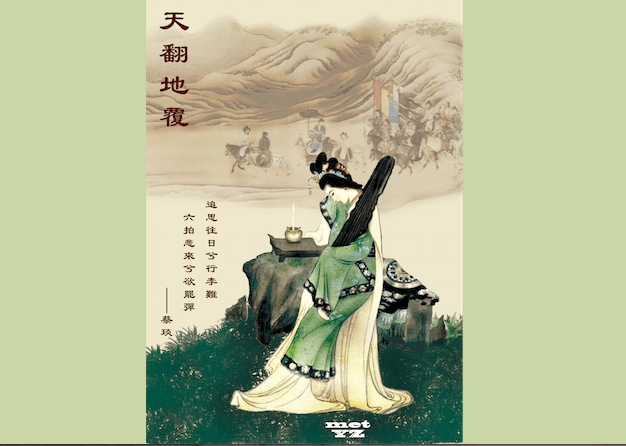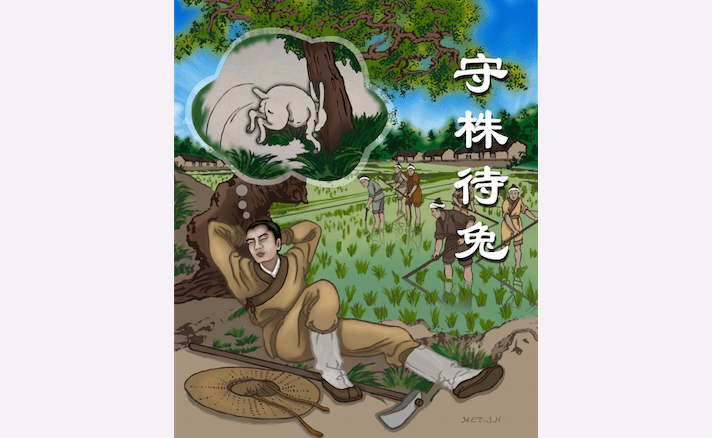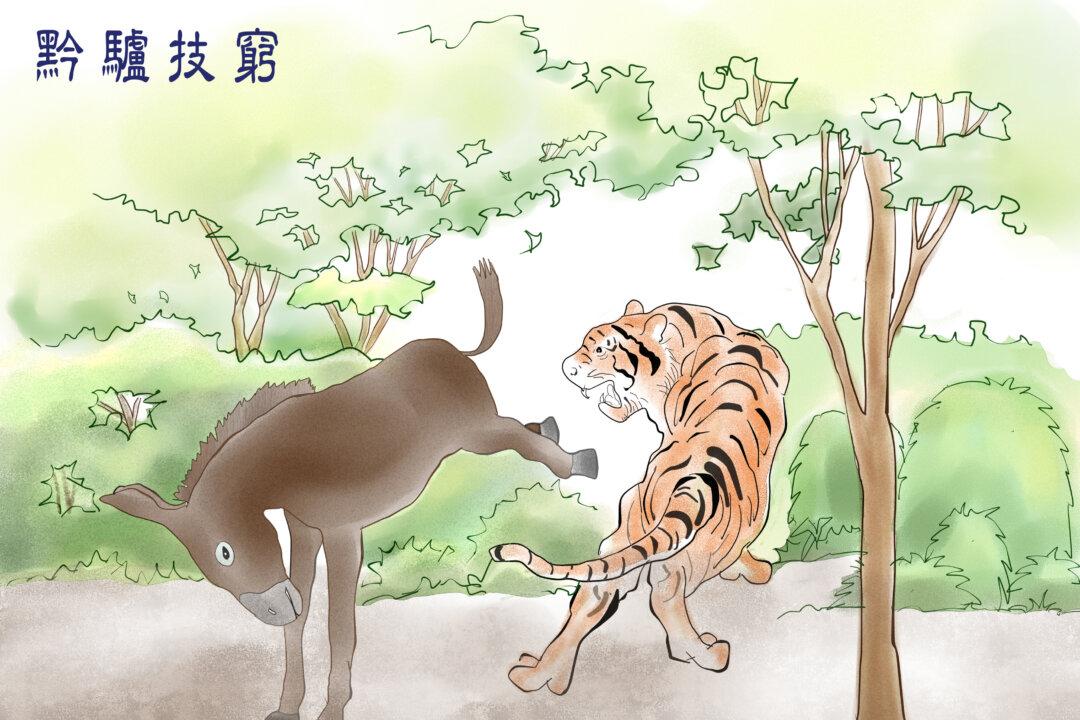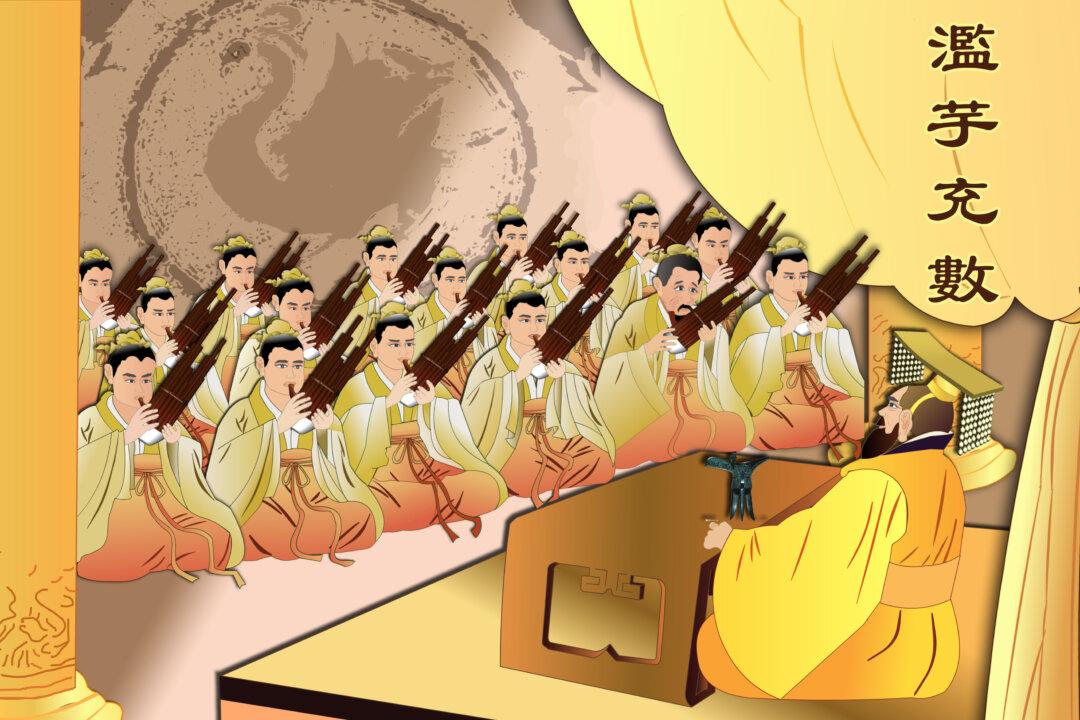The idiom huà bǐng chōng jī, “draw a pancake to allay hunger,” is based on a story about Lu Yu in the Book of Wei in the “Records of the Three Kingdoms(1)” (“三國志”).
At 10, Lu Yu was orphaned by the many wars during the Three Kingdoms period (A.D. 220–280). He had two elder brothers who also died during those turbulent times, so he dutifully looked after his widowed sisters-in-law and nephews.
Day after difficult day, he studied hard and was praised by people for his noble manner and depth of knowledge.
Lu Yu became a senior official in the Kingdom of Wei. He was very hardworking, industrious as a hornet. He won the trust of Cao Rui(2),the emperor of Wei, because of his valuable advice, which was usually based on the interests of the people.
One day, the emperor called his ministers to him. Unhappy with the selection process of officials, he asked the incorruptible Lu Yu to recommend a person for the important position of an official scribe of history.
At that time, selection was based on the recommendation of the powerful and influential who would often choose people according to their social status or fame.
The emperor said: “This time, I ask Lu Yu to recommend a person for the post. The selection of government officials should not be based on one’s fame. An unfounded reputation is just like the picture of a pancake; it cannot be eaten!”
This story gave rise to the idiom “draw a pancake to allay hunger.” It originally meant that an empty reputation had no practical value. Now, this idiom is used to mean comforting oneself with unrealistic plans or wishful thinking, without solving problems.
A similar idiom is wàng méi zhǐ kě (望梅止渴), “to quench one’s thirst by thinking of plums,” meaning “to feed on illusions.”
Note:
- “Records of the Three Kingdoms” is a great historical text that covers Chinese history from 184 B.C. to A.D. 280. Originally, it was three separate books: the Book of Wei, the Book of Shu, and the Book of Wu. It was compiled into one book in A.D. 1003.
- Cao Rui(A.D. 204–239), also known as Wei Ming Di (魏明帝), was the second emperor of the Kingdom of Wei during the Three Kingdomsperiod and the grandson of Cao Cao. He was enthroned in 226 and died in 239 at the age of 35, his reign lasting 12 years.



